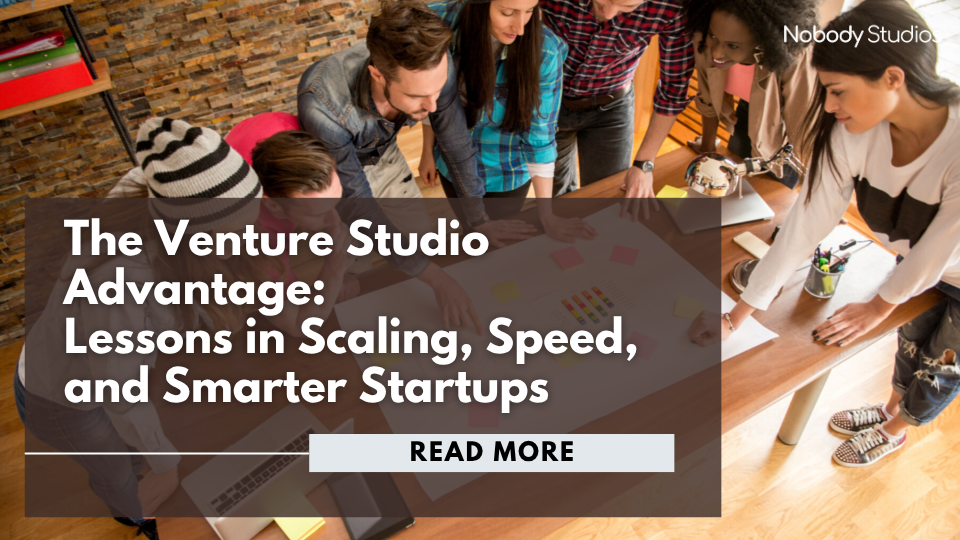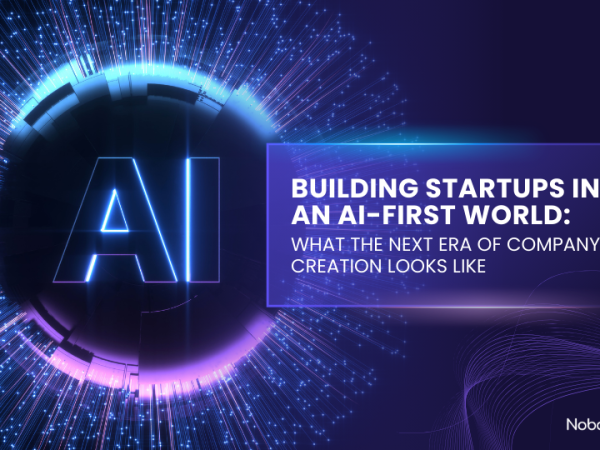
In the ever-evolving world of innovation, venture studios are emerging as one of the most promising models for launching startups at scale. But building multiple companies simultaneously isn’t just about speed — it’s about structure, clarity, and long-term vision.
Here are some of the most powerful insights behind how leading venture studios like Nobody Studios are redefining how startups are launched and grown.
🔍 Why Every Studio Needs (the Right Kind of) Checklists
A structured checklist isn’t just a best practice — it’s essential when launching multiple startups in parallel. But as Chief Nobody Mark McNally points out, checklists are a double-edged sword. While they help ensure consistency and reduce obvious mistakes, they shouldn’t become rigid barriers that override instinct, timing, or founder judgment.
“Checklists are there to make sure you don’t miss things — not to create things.”
From legal compliance to onboarding, and especially intellectual property protection, foundational checklists are must-haves. Tools like Evalify (a startup born from Nobody Studios) help de-risk IP issues early on — giving teams a fast, cost-effective way to assess patent risks before they become expensive mistakes.
⚠️ The Pitfalls of Overproduction
One of the most common traps for venture studios? Trying to build too many companies too quickly. But for a studio built on big goals — like launching 100 startups in five years — speed is part of the model.
That said, quantity doesn’t replace quality. McNally emphasizes the importance of building strong operational foundations, team structures, and processes to support that scale. Big goals force creative thinking — not shortcuts.
“We’re not doing this to repeat the old way slightly better. We’re here to invent something new.”
🎯 Fundraising, Focus, and Alignment with Investors
A key challenge for venture studios lies in navigating the expectations of follow-on investors. Studios must be intentional about not only the startups they launch, but whether those ventures align with future funding pathways.
Mark notes that venture capitalists — particularly large funds — often can’t invest in studios directly due to legal constraints. But studios like Nobody Studios don’t see this as a setback. Instead, they focus on producing highly fundable individual companies — ones with strong early validation, product traction, and founder conviction.
“We believe our job is to take an idea off the whiteboard and prove it. If it’s proven, it’s fundable.”
 👥 The Critical Role of People: Culture, Co-Founders, and Leadership
👥 The Critical Role of People: Culture, Co-Founders, and Leadership
In a high-velocity model like a venture studio, leadership isn’t just important — it’s make-or-break. That’s why culture is treated as foundational from day one.
When it comes to recruiting co-founders, alignment on vision and values is just as critical as skills. Studios should look beyond resumes and focus on the deeper “why” behind someone’s motivation to build.
And as the venture scales, so should its leadership. Studios must remain flexible, knowing that the ideal CEO at one stage may not be the same at the next.
🧭 Transparency Is Non-Negotiable
Balancing multiple startups, investor expectations, and a growing internal team requires one thing above all: radical transparency. Whether it’s about decision-making, equity structures, or fundraising challenges, trust is built by keeping all stakeholders informed and aligned.
For Nobody Studios, transparency and core values aren’t an afterthought — they’re the operating system.
Final Thoughts
Venture studios represent a bold evolution in the startup world — one where speed, structure, and scale can coexist. But success in this model doesn’t come from shortcuts. It comes from building smarter, not just faster.
From designing thoughtful checklists to recruiting aligned co-founders, and from protecting IP upfront to staying transparent with investors — the playbook is clear: studios that invest in strong foundations are the ones that will stand the test of time.


